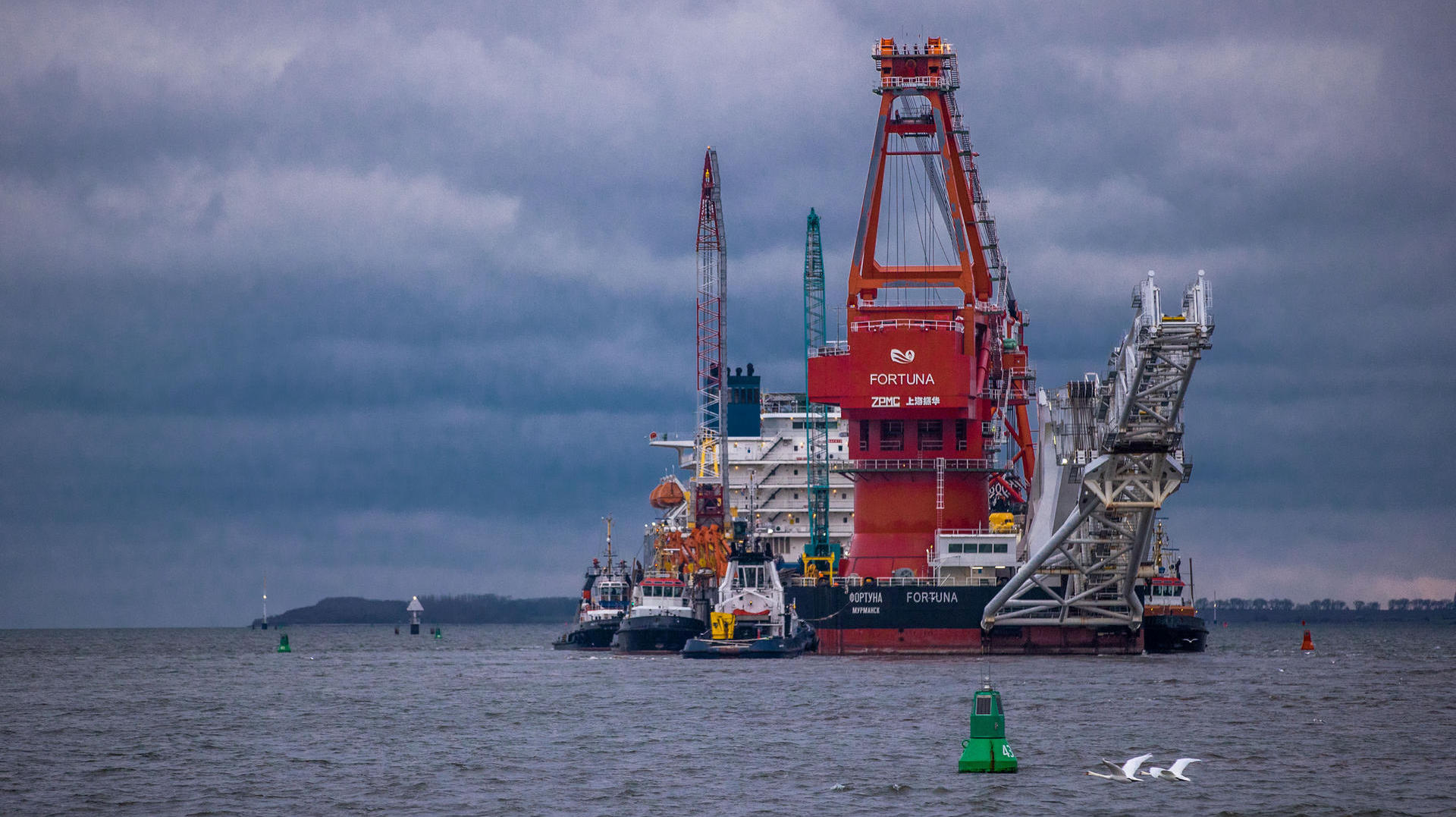The dispute between the United States and Germany before the escalation

The dispute between the federal government and the United States over the controversial Nord Stream 2 pipeline has stopped and now threatens to escalate entirely. The United States is likely to impose sanctions on Germany.
The dispute between the federal government and the US administration under the president Joe Biden About the almost completed pipeline Nord Stream 2 Threatens to escalate completely. Germany The request is rejected United States of America After the construction freeze, according to information from Spiegel, the federal government also refuses to negotiate with the Americans over the controversial project.
The United States government is not prepared to compromise on this issue; According to Spiegel, there is hardly any leeway for the United States to waive sanctions. “The Germans should understand how serious this issue is for us,” one of Biden’s advisers told the news magazine. The US President is ready to discuss the sensitive issue with Chancellor Angela Merkel. This makes no sense, “if he only hears at the end: No, no, no.”
The federal government was disappointed with Biden
The federal government expects no compromise on this national issue, and Berlin is disappointed with the Biden government’s difficult path. “We expected a further resumption of transatlantic relations,” said Peter Bayer, the federal government’s coordinator for transatlantic relations.
Since Biden won the election in November, the federal government has been mulling how to position itself in Nord Stream 2. Because the resistance against his unpopular predecessor Donald Trump has been much easier. Satisfaction with the new US administration and its multilateral approach is so great that one does not want to burden cooperation as much as possible.
“We will need gas for a transitional period.”
But the Berlin Alliance and most of the state governments adhered to their support for the one billion dollar project and more than 95 percent completed, which is to bring more Russian gas to Western Europe, in which many European companies participate. Chancellor Angela Merkel, Economic Affairs Minister Peter Altmire and Foreign Minister Heiko Maas confirmed this repeatedly after Biden took office. The central argument is that supply security for Germany as an industrial site must be secured if coal and nuclear energy are phased out at the same time.
“In a transitional period, we will need gas that is not produced in Germany. We must protect the geopolitical interests of the countries of the region.” Ukraine “Our energy supplies are guaranteed and secured through this private sector project,” the prime minister of North Rhine-Westphalia, the president of the Christian Democratic Union, Armin Laschet, told Reuters.
His colleagues in the East, Lower Saxony and Bavaria think the same way. Lachit and MAS also point out that the United States itself is in crude oil Russia Shopping – So Washington’s criticism is inconsistent anyway. In addition, one rejects, for reasons of principle, the sanctions imposed by the United States on a project in Europe outside its territory.
Searching for a “face-saving” solution
Weeks ago, we already discussed in Berlin the avenues that could be for a “face-saving” solution: First, one could seek more assurances to Ukraine that it would not change its status as a transit country for Russian gas to the West with Nord Stream 2 either loses. However, it is noteworthy that the European Union and Germany have already negotiated a new gas contract between the country and Gazprom.
The president of the Munich Security Conference, Wolfgang Ischinger, has also proposed a possible halt of deliveries from Russia in the event of a crisis. It is also conceivable that Germany, with more commitment in other areas, will prove to be an ideal partner across the Atlantic. After all, the government just announced that it intends to send a frigate to the Indian and Pacific Oceans in August that will also sail across the South China Sea. Berlin is also behind EU sanctions against China over the measure against the Uyghur Muslim minority – although this has sparked tensions in German-Chinese relations and led to counter-sanctions. Both are nods towards Washington, too.
The federal government is unlikely to repeat a proposal made in 2020 to focus more on expanding LNG technology in order to introduce US LNG to satisfy Washington. In the new administration led by Democrats, unlike in the Trump era himself, there are big reservations about fracking gas, as they say in government circles.

Twitter fan. Beer specialist. Entrepreneur. General pop culture nerd. Music trailblazer. Problem solver. Bacon evangelist. Foodaholic.



